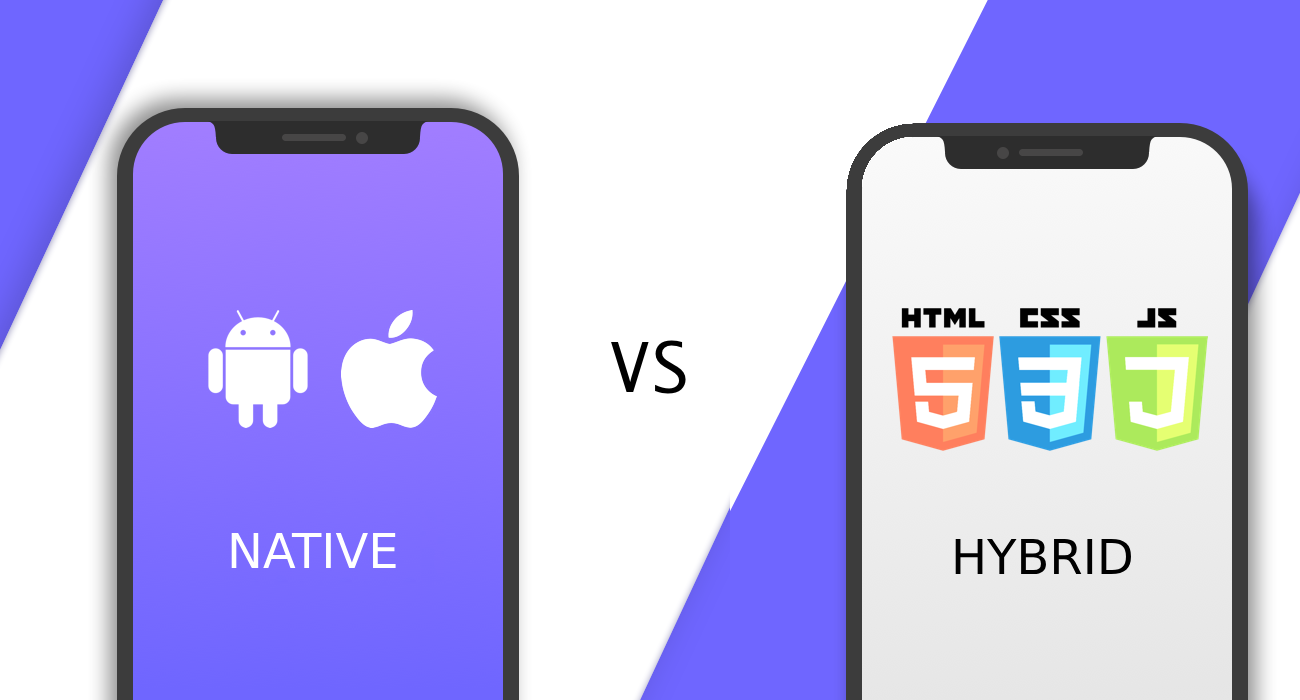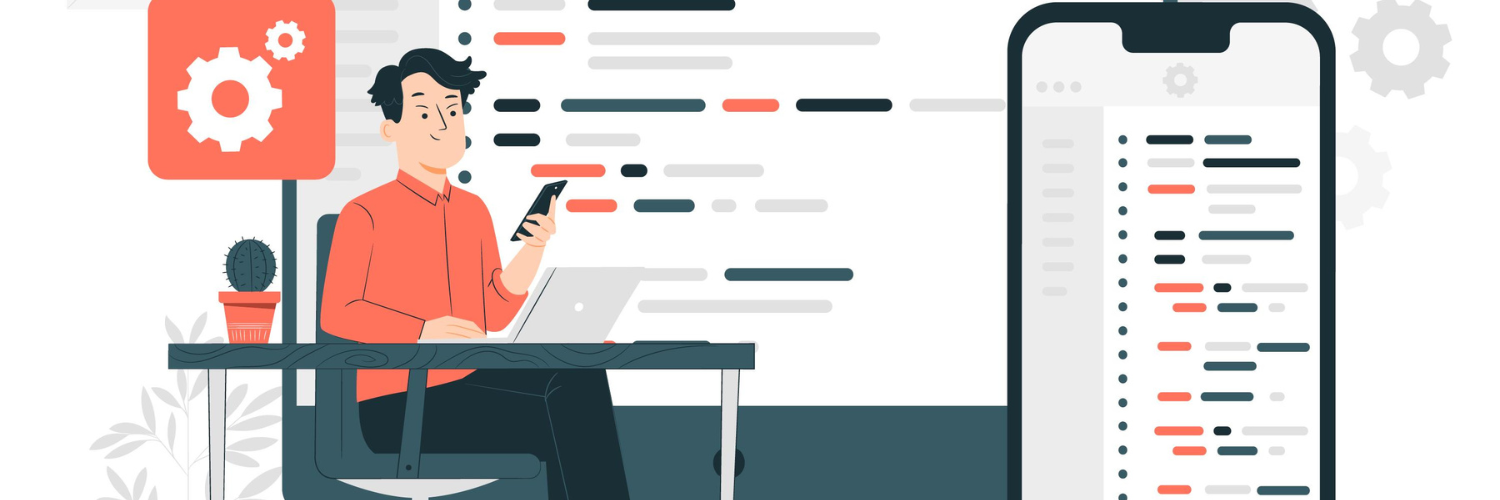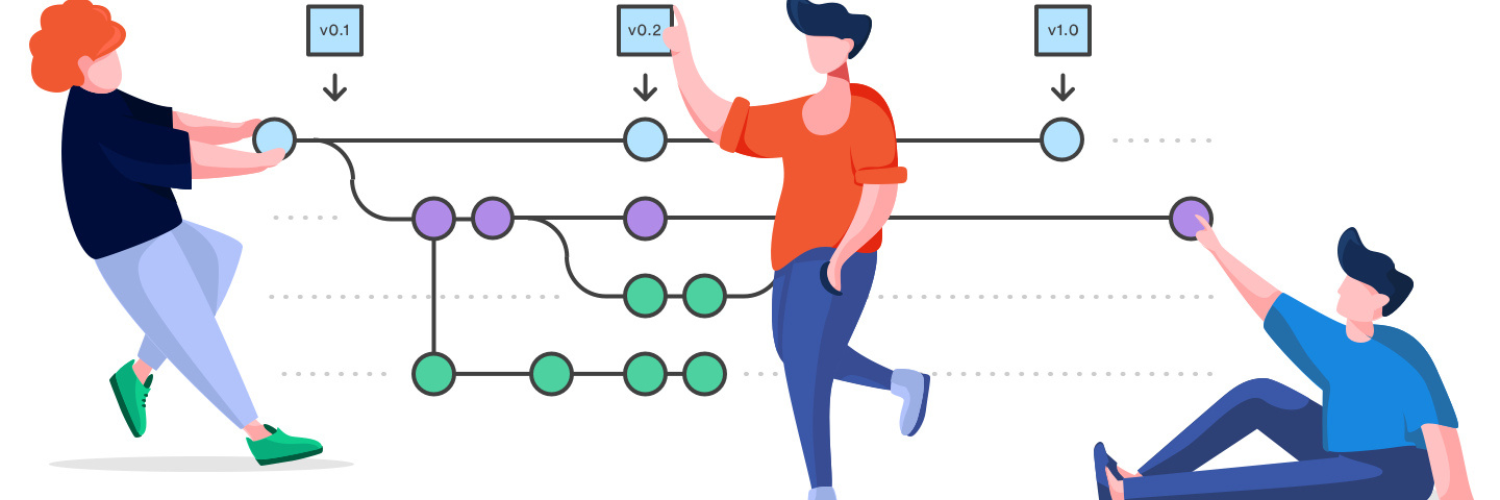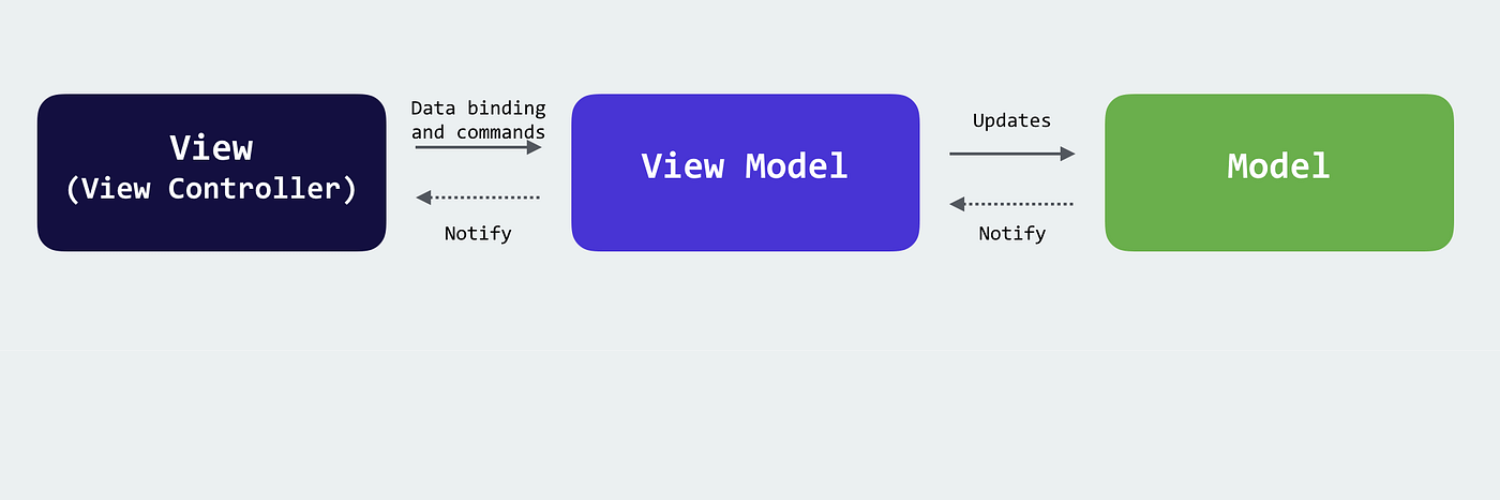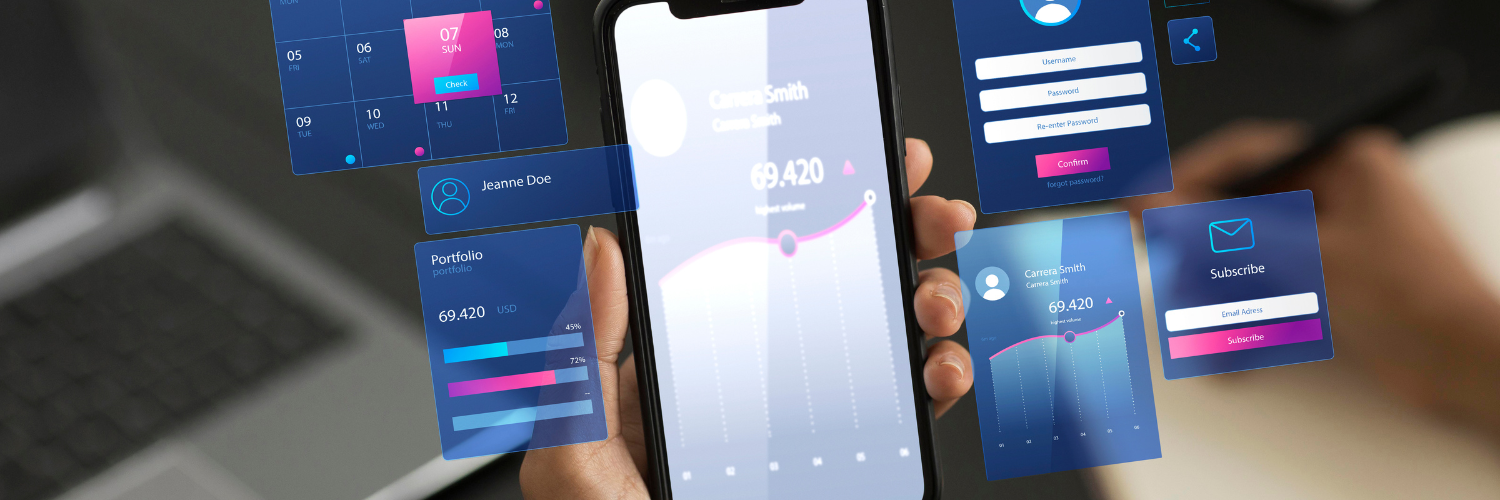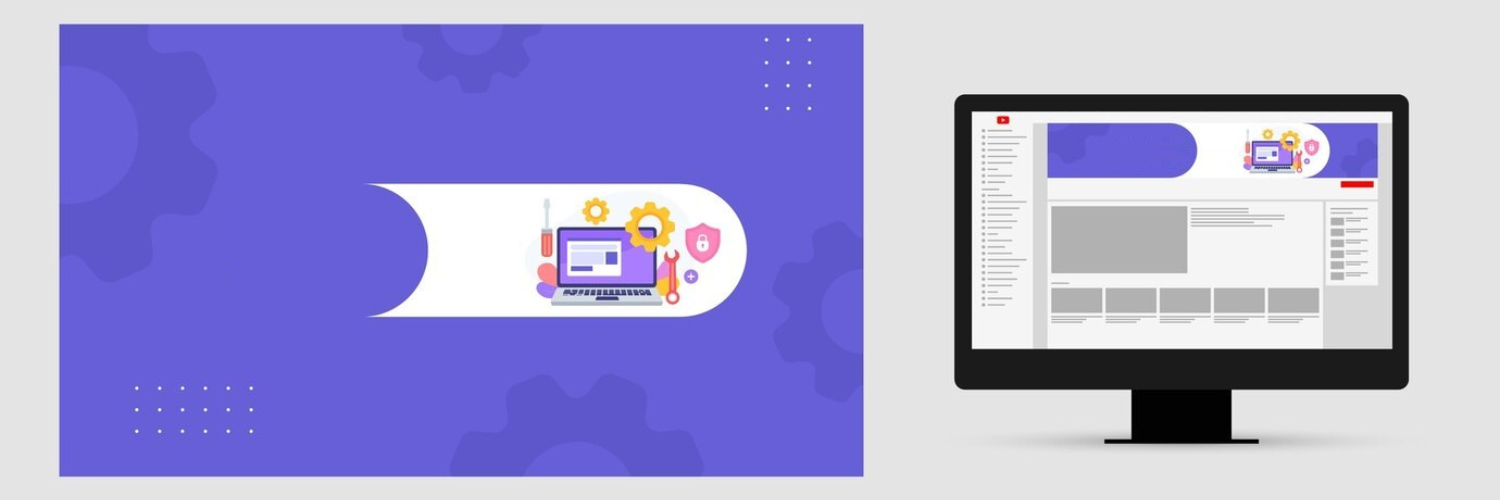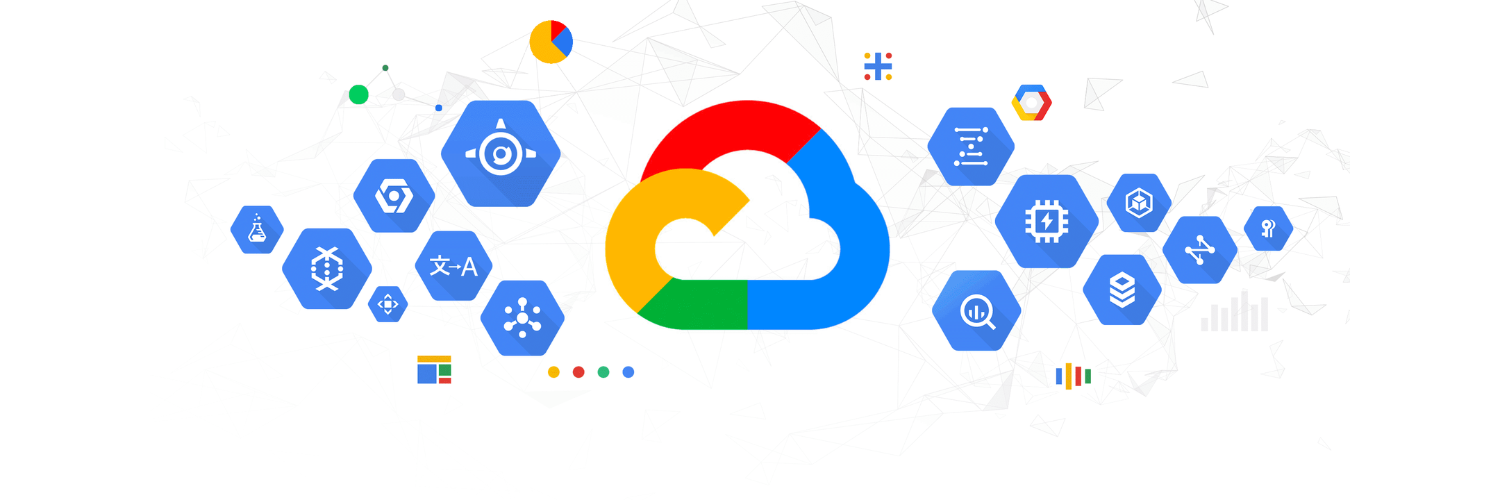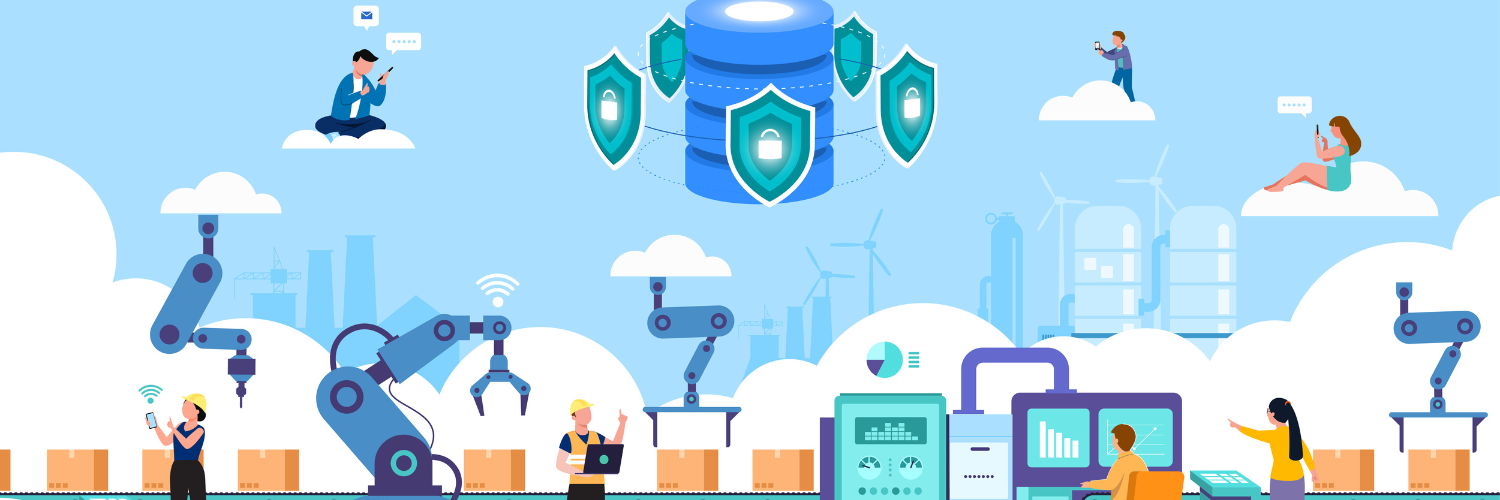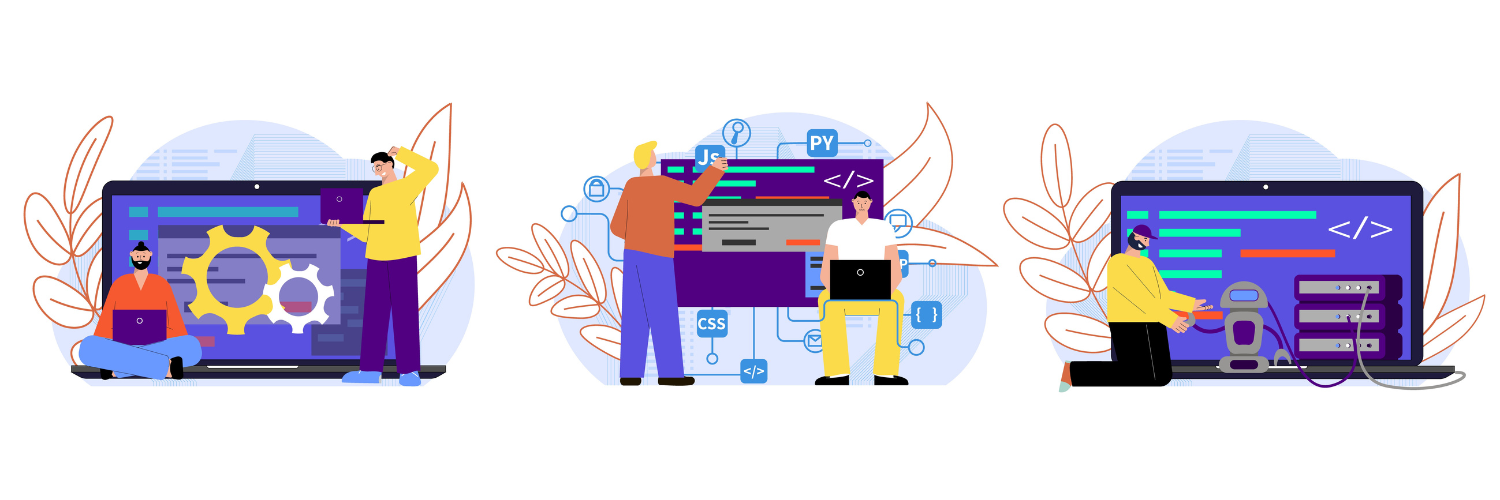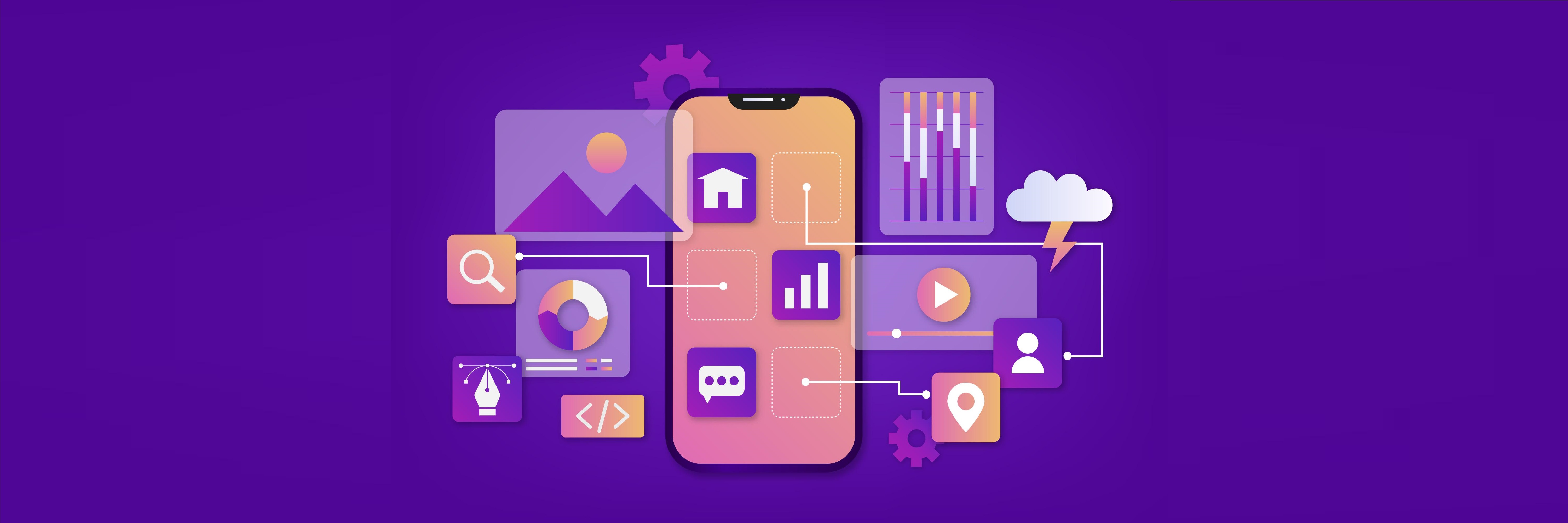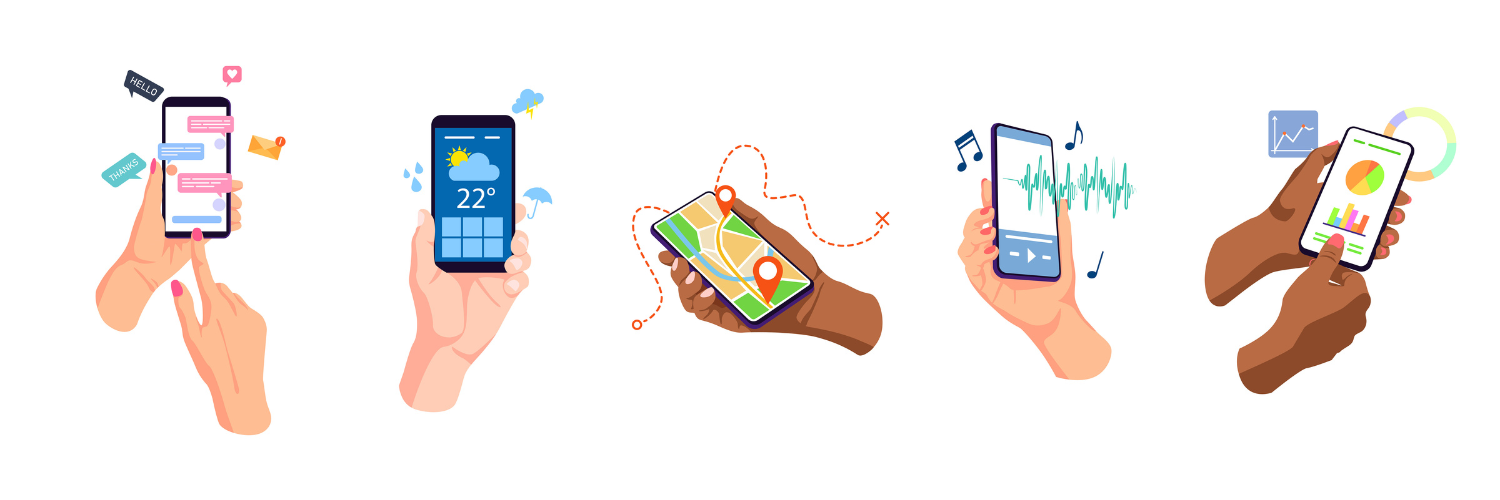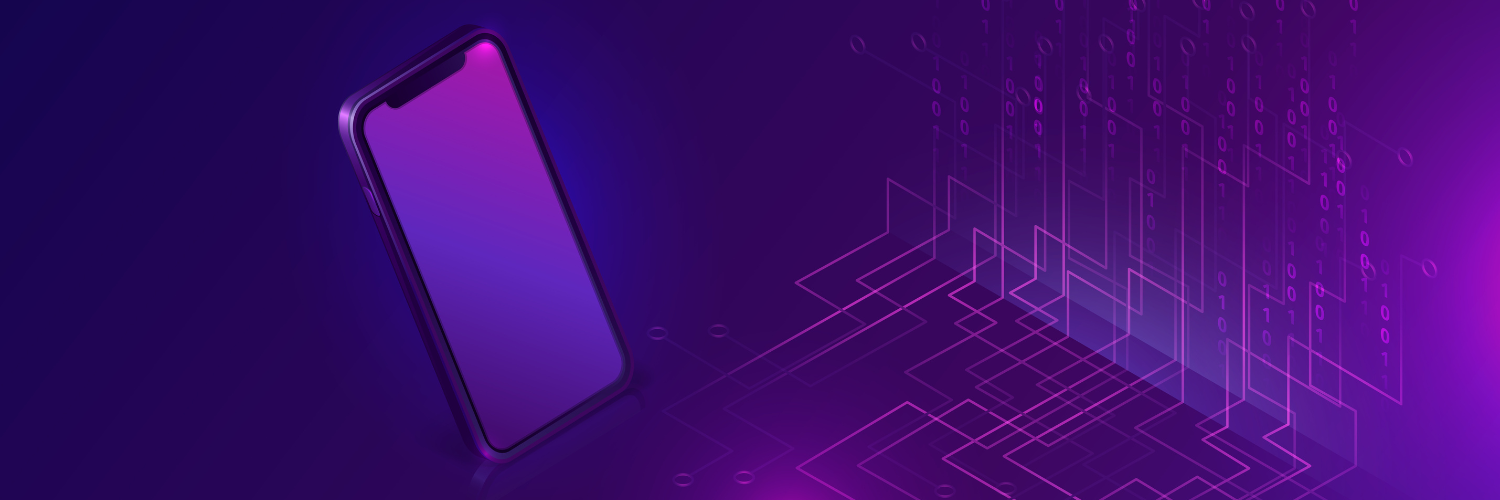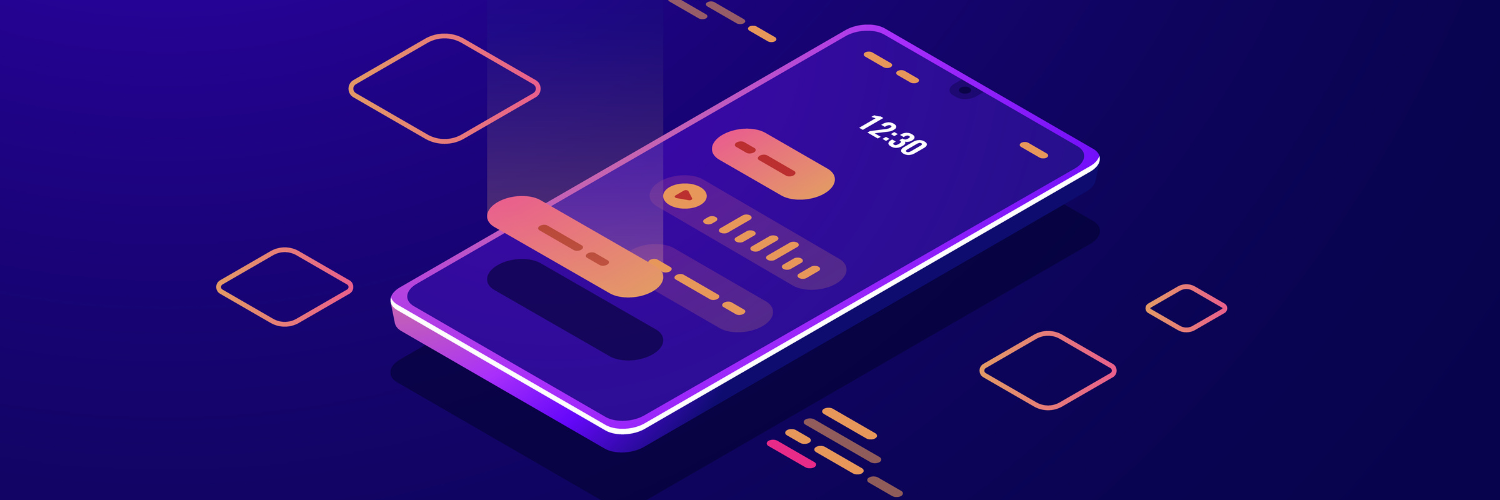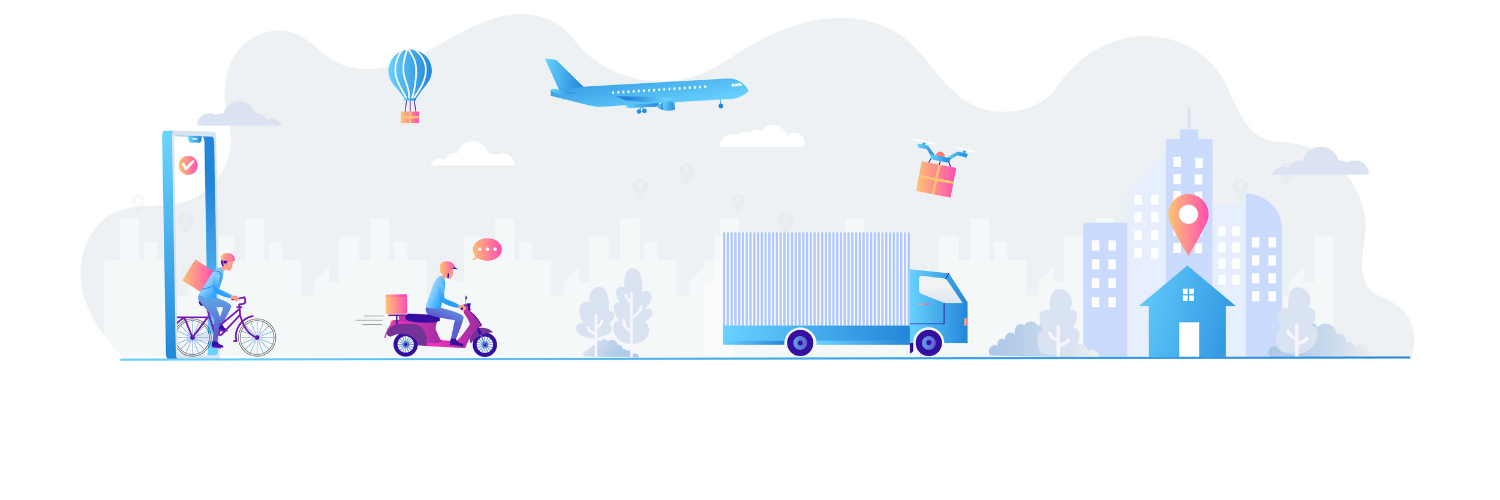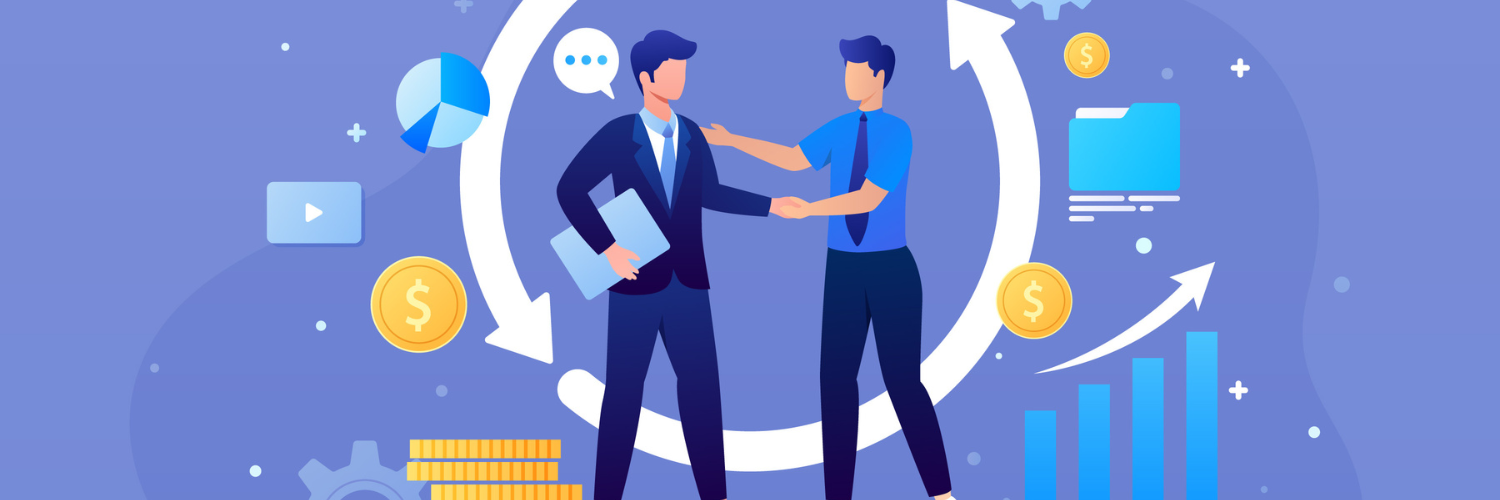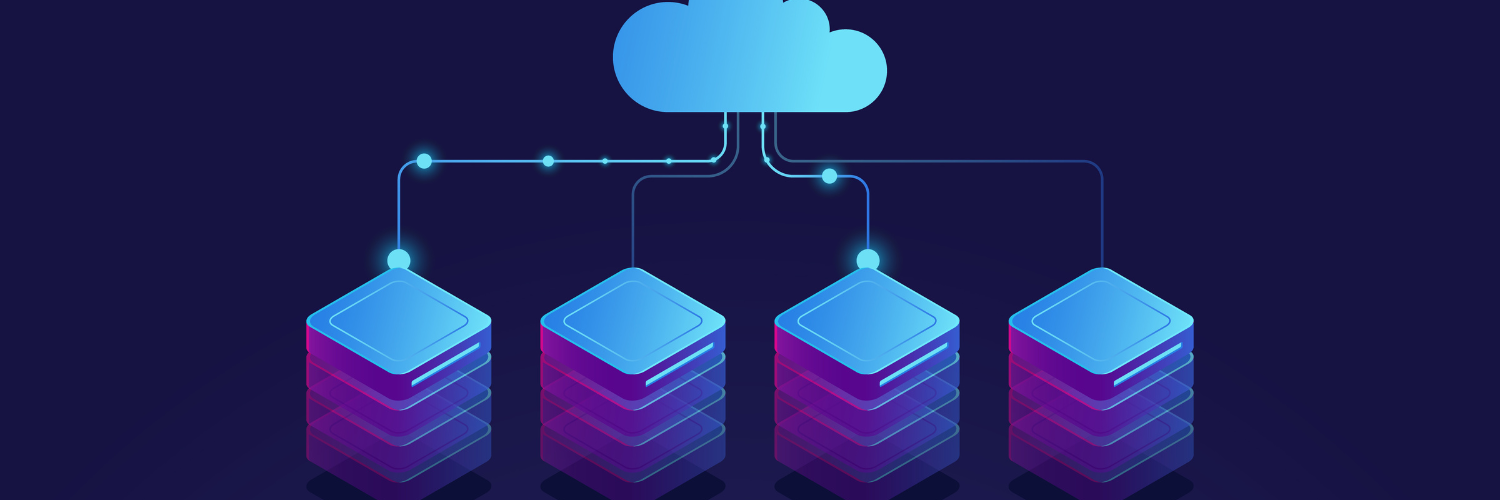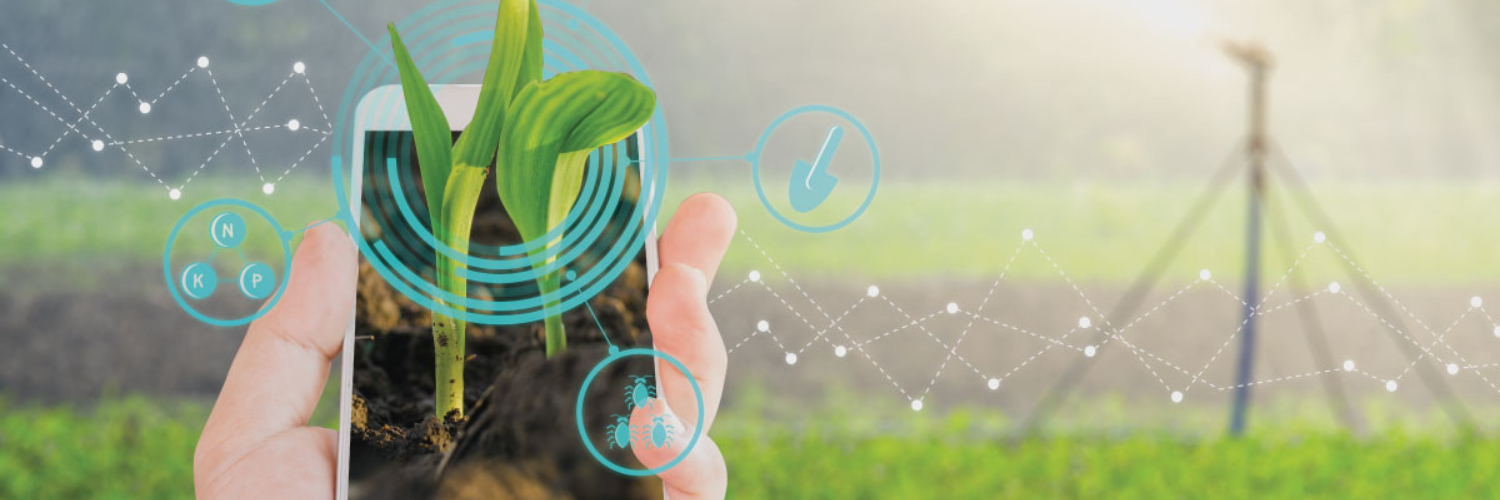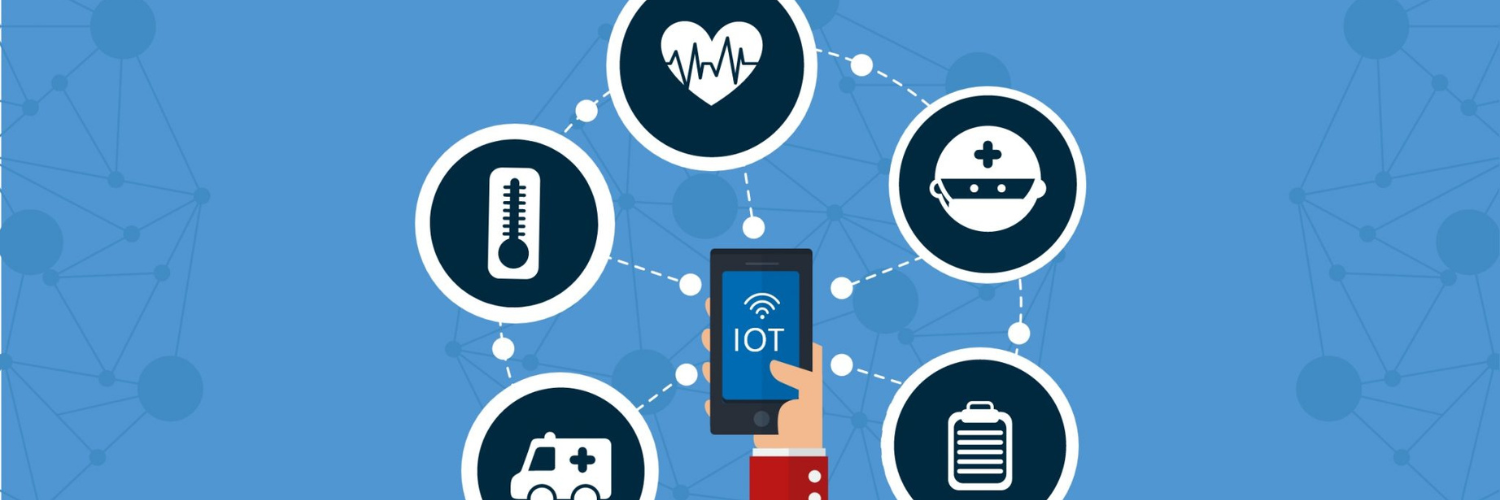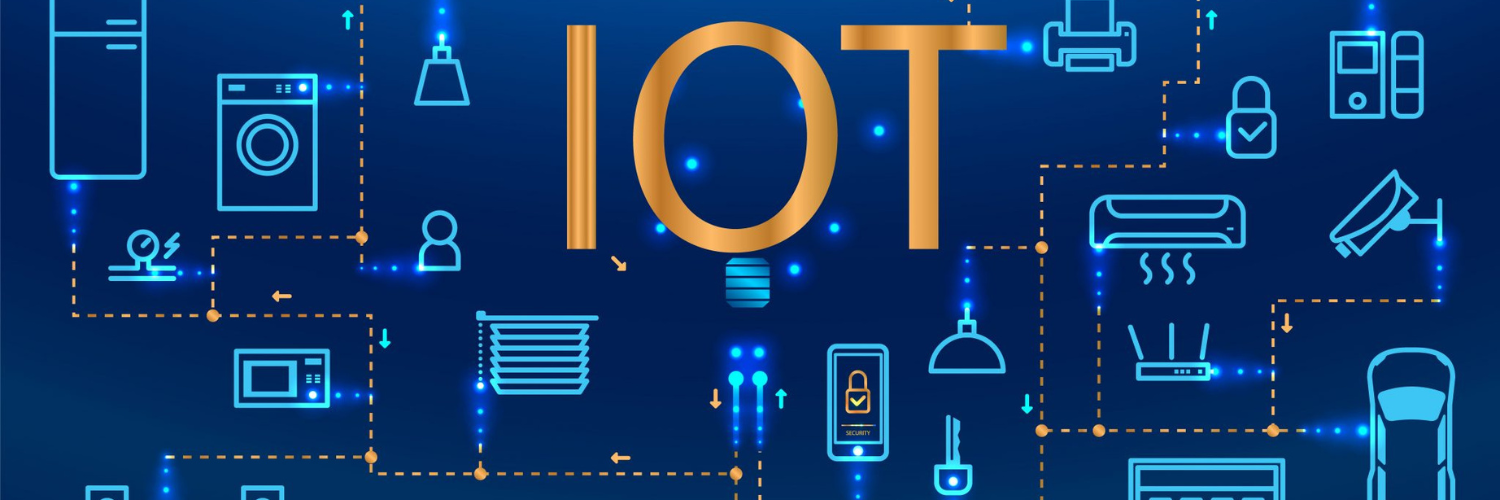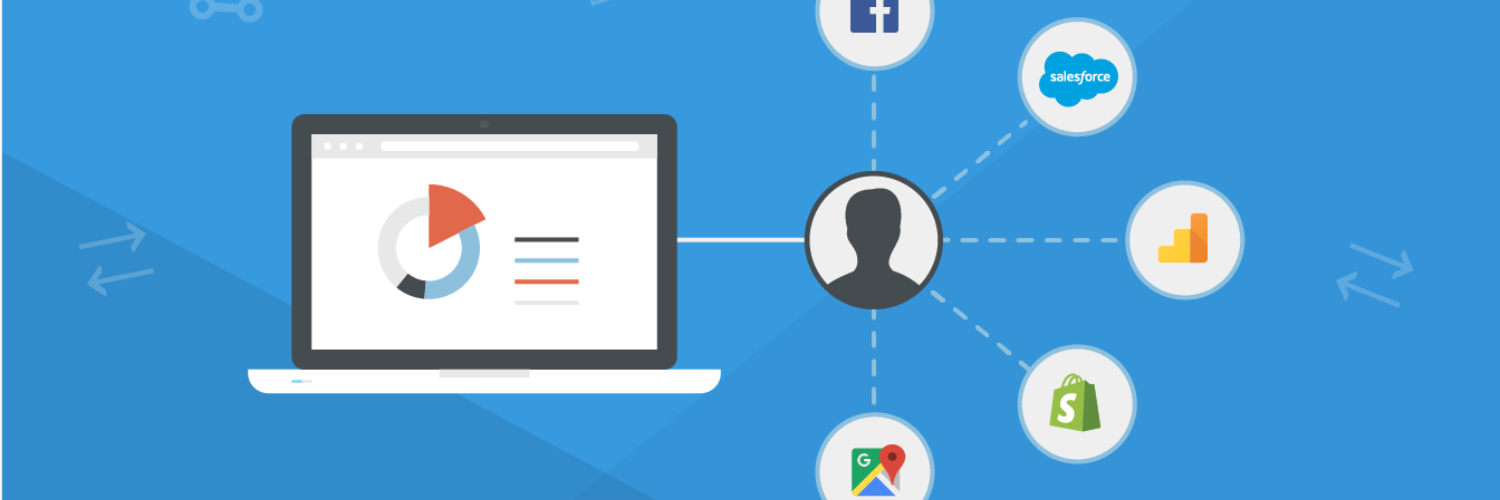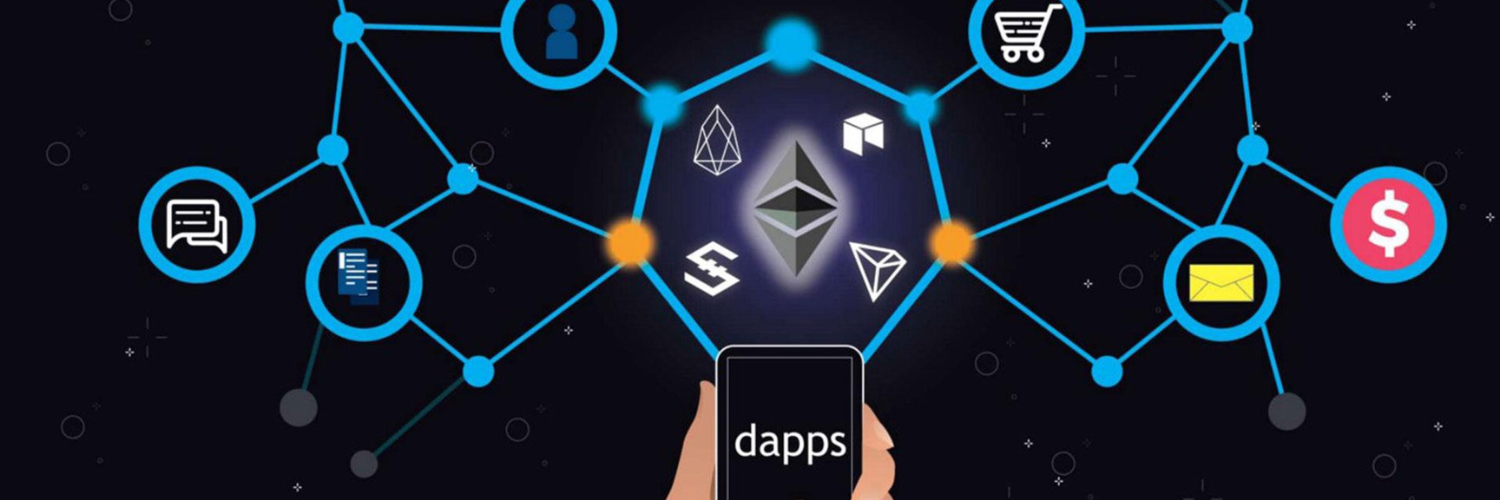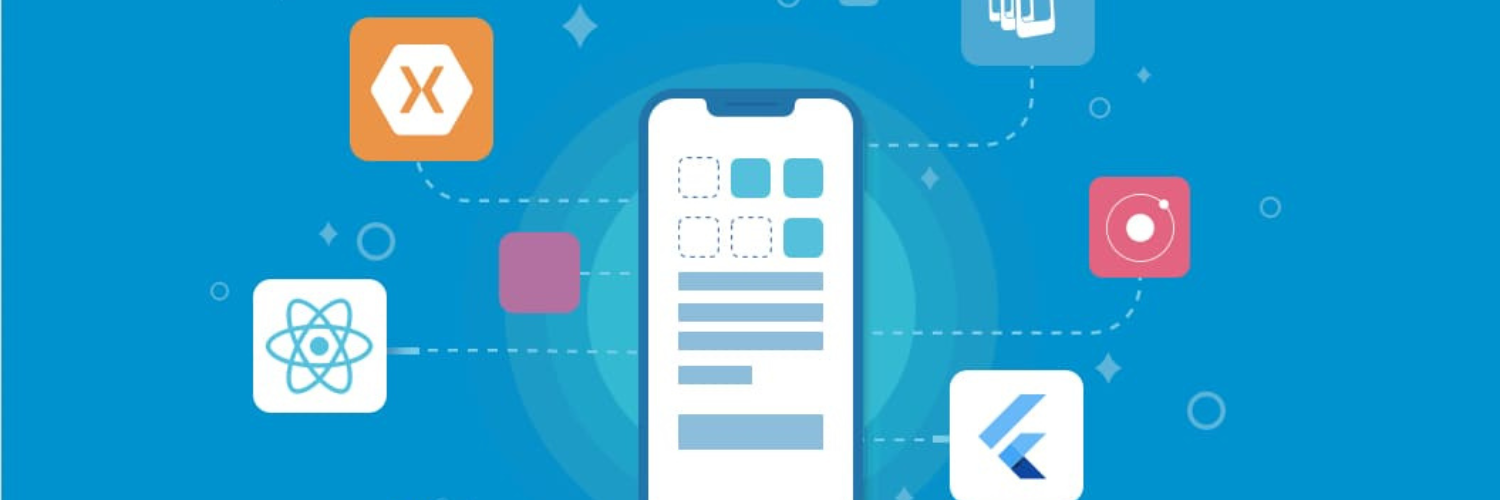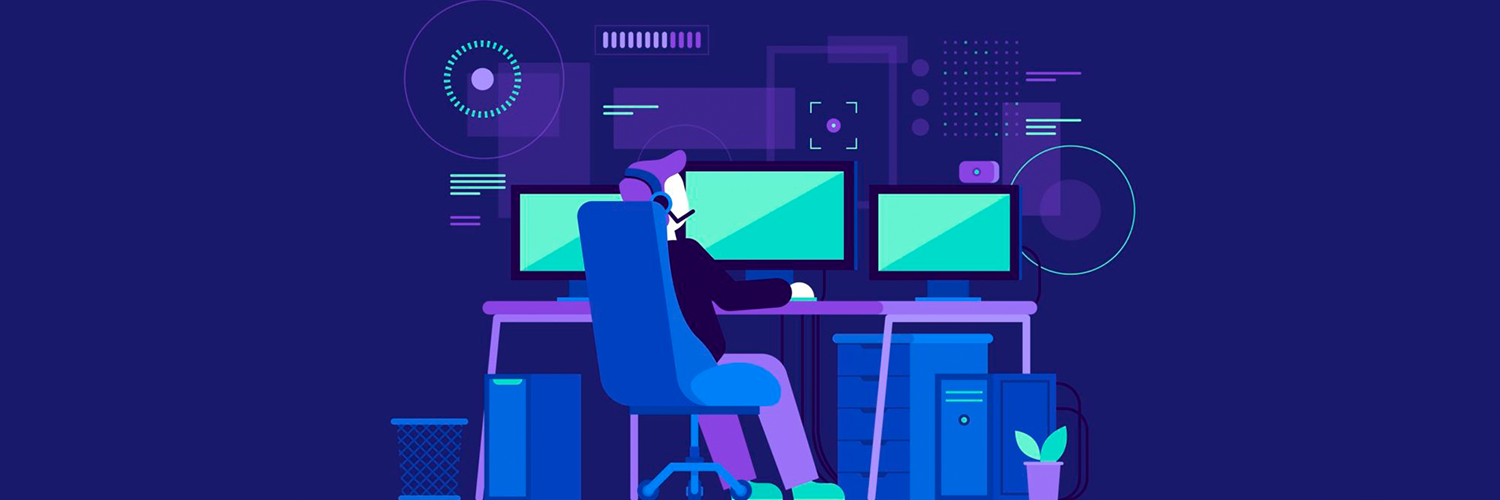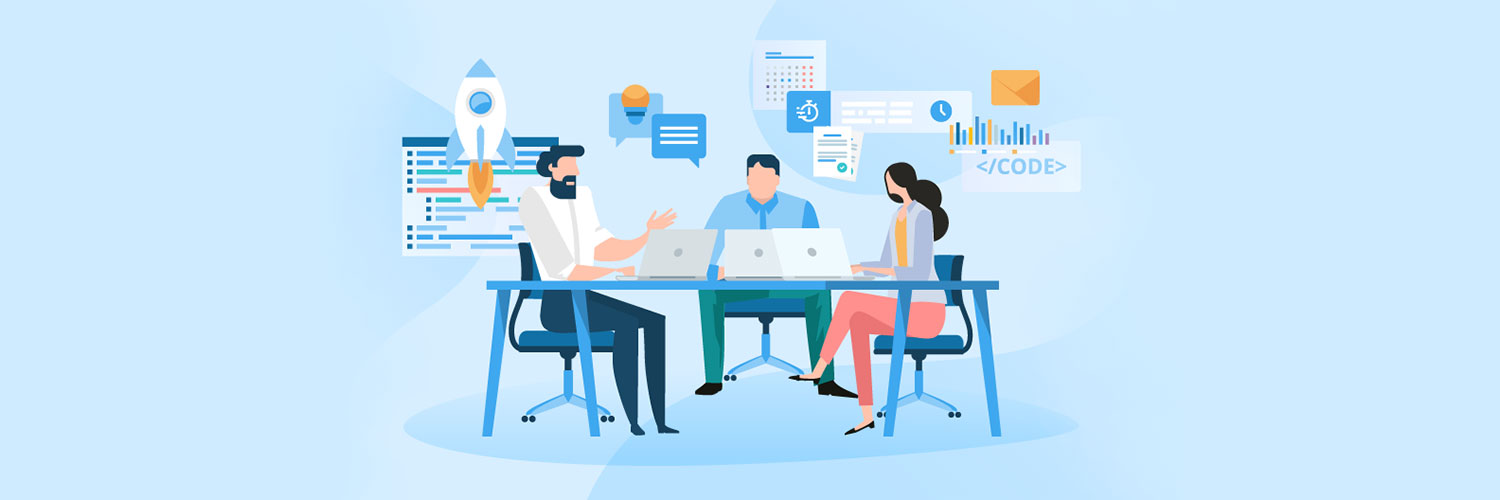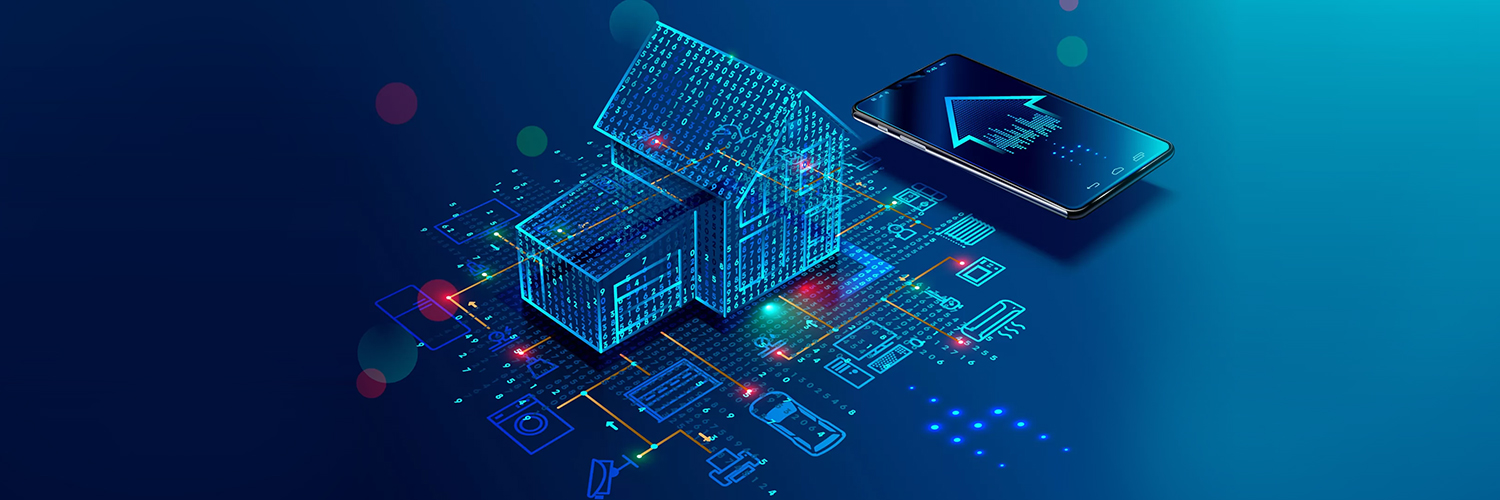As we stand on the end of 2023, the landscape of mobile app development continues to expand, offering an array of intricate decisions for businesses and developers alike.
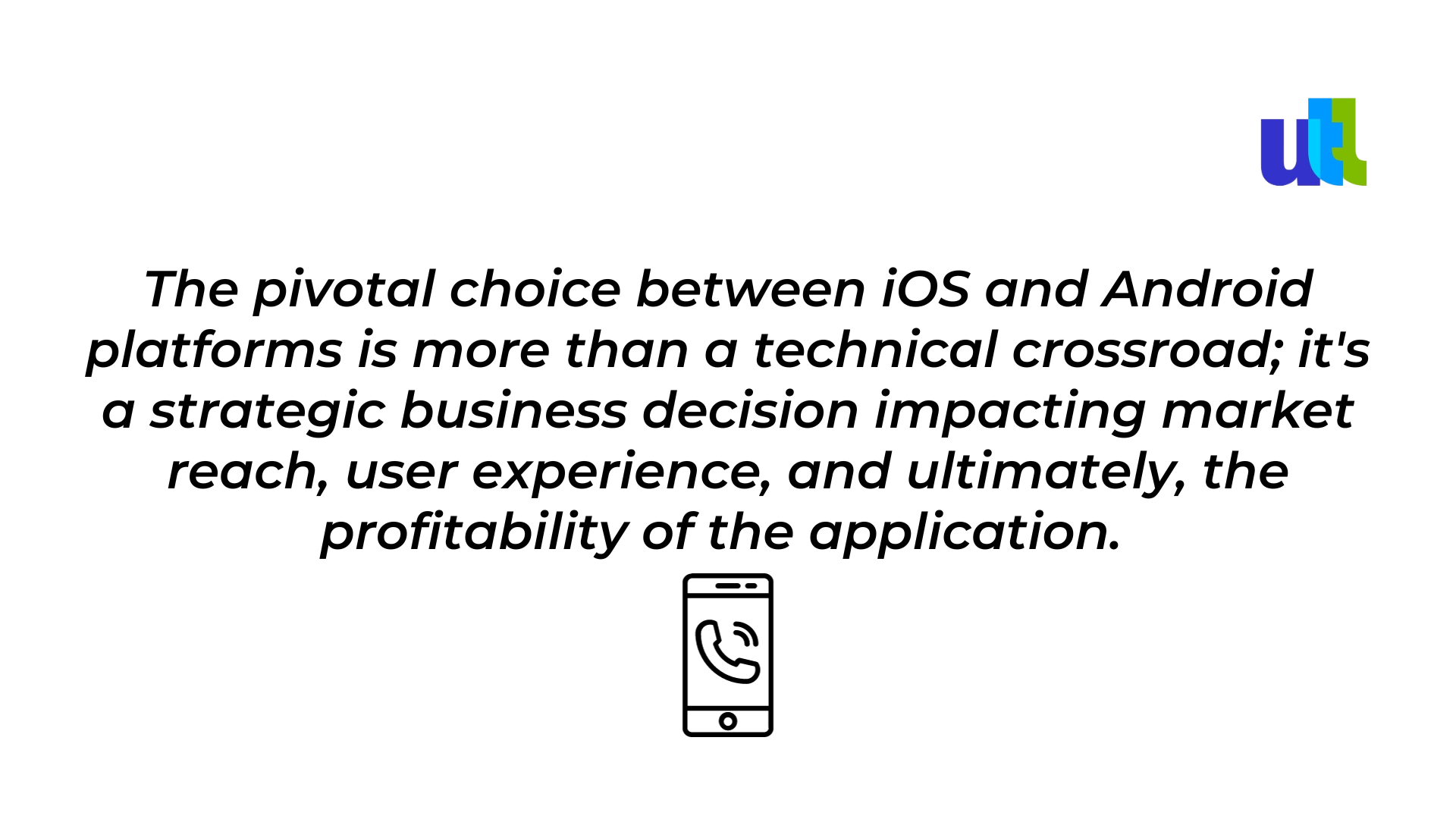
The complexity of this choice has increased, with each platform presenting a unique set of advantages and constraints.
The intent of this blog is not merely to compare but to provide an analysis that aids in making an informed and strategic decision.
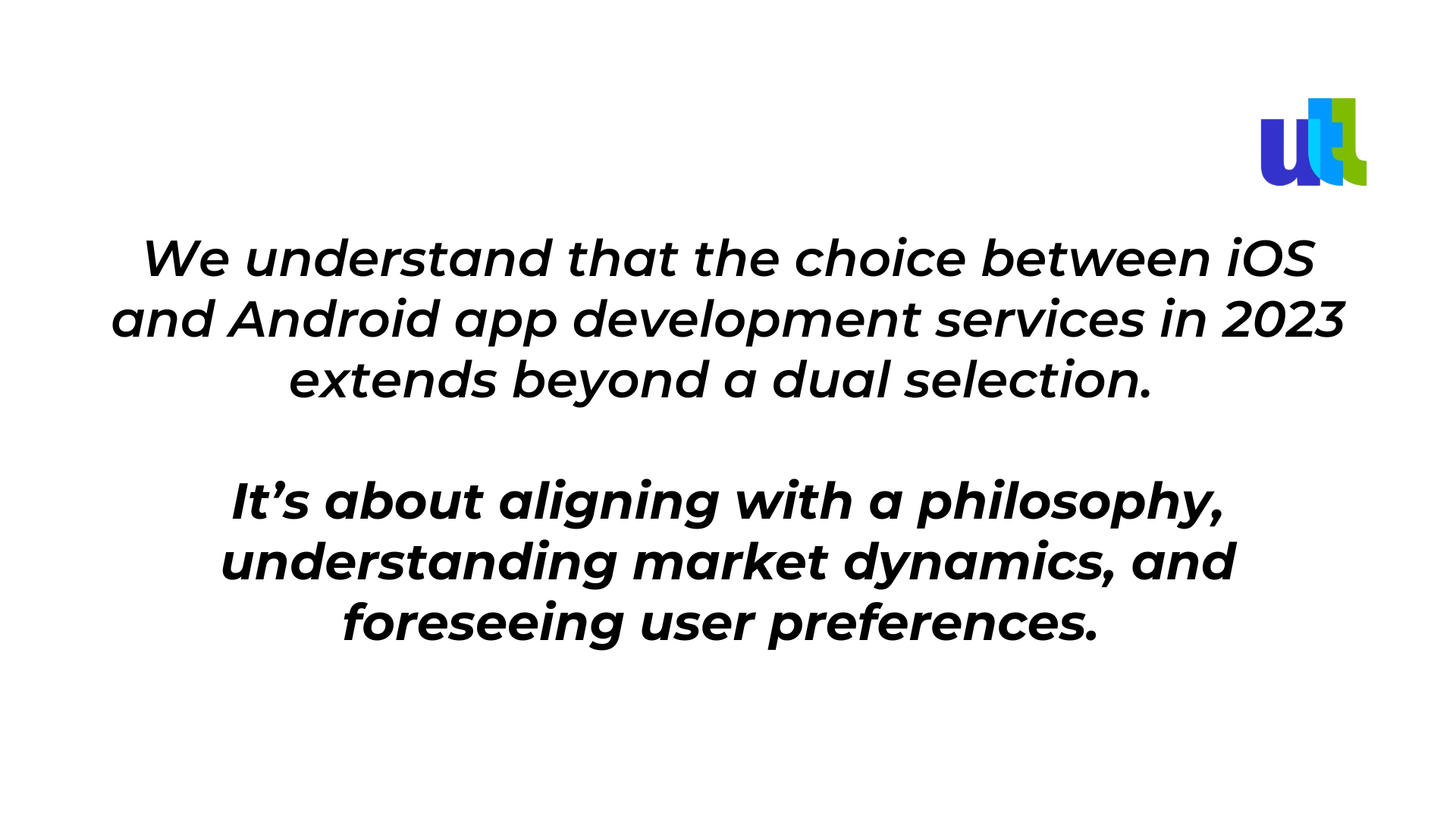
The competition between iOS and Android app development isn't just a contest between two brands; it's a global standoff involving ecosystems, philosophies, and the very approach to human-tech interaction.
The iOS platform, known for its tight integration and user-centric design, offers an environment where quality is paramount. Apple's commitment to creating premium experiences is evident in the seamless operation of their apps, reflecting a philosophy that emphasizes privacy, security, and a high-caliber user experience.
On the other side stands Android, celebrated for its versatility and accessibility. Android app development is often seen as a more open playground, offering a diverse array of tools, customization options, and a broader device market. This approach democratizes app development, inviting creators to innovate without constraint, catering to a wide array of preferences and needs.
Language and Tools
An understanding of language and tools is the foundation of app development. Swift, a powerful and user-friendly programming language designed specifically for Apple's ecosystem, is primarily used in iOS to ensure efficiency and security. The main tool, Xcode, offers a complete development environment with features that speed up the process of creating apps.
In contrast, Android app development is versatile, with Java and Kotlin as the preferred languages. Because it is more user-friendly than Java, Kotlin, which is known for its clear and expressive composition, has been gaining popularity. With a robust programming environment that includes an emulator, code editor, and debugging tools, Android Studio is the standard tool.
Kotlin, known for its concise and expressive syntax, has been gaining power for its ease of use over Java. Android Studio stands as the quintessential tool, offering a rich development environment complete with an emulator, code editor, and debugging tools.
For developers inclined towards cross-platform applications, tools like React Native, Xamarin, and Flutter allow code reusability across iOS and Android platforms, although they may have performance trade-offs.
Policies and Guidelines
Adherence to platform-specific policies and guidelines is paramount. Apple's severe guidelines require that apps meet high standards of design, functionality, and security. The review process is rigorous, ensuring that apps conform to their Human Interface Guidelines, App Store Review Guidelines, and App Store Marketing Guidelines.
Conversely, Android offers more flexibility in development, but it maintains its standard through Google Play Developer Program Policies. These policies encompass various aspects, including content, security, and user data protection. The Material Design guidelines help maintain consistency in UI/UX across Android apps.
User Experience and Design
Creating an exceptional user experience requires understanding and implementing platform-specific design guidelines. iOS is renowned for its minimalist and sleek design, whereas Android is favored for its customization capabilities. Navigation should be intuitive, the typography legible, and the design should consider the user's journey and context. Importantly, testing for design consistency and functionality across devices is indispensable.
Security and Privacy Features
Security and privacy are pivotal in app development. iOS is highly regarded for its security measures, with a rigorous app review process and features like “App Tracking Transparency” to safeguard user data. Android has significantly enhanced its security features, with measures such as Google Play Protect to scan for potential security threats.
Integration with Third-party Devices
Integration with third-party devices varies significantly between iOS and Android due to their respective closed and open ecosystems. Developers need to ensure compatibility, select appropriate frameworks, conduct real-world testing, and stay abreast of changes in SDKs and APIs that could impact integrations.
Choosing between iOS and Android app development in 2023 is a nuanced decision, influenced by various factors including the target audience, desired app features, budget, and revenue goals. Understanding the intricacies of each platform—from development tools and languages to design principles, security features, and third-party integration capabilities—is crucial for making an informed choice.
iOS Vs. Android: Choosing Your Option
The decision between Android and iOS app development hinges on your specific project requirements. Considerations extend beyond coding to encompass business objectives, target demographics, budget constraints, and timelines.
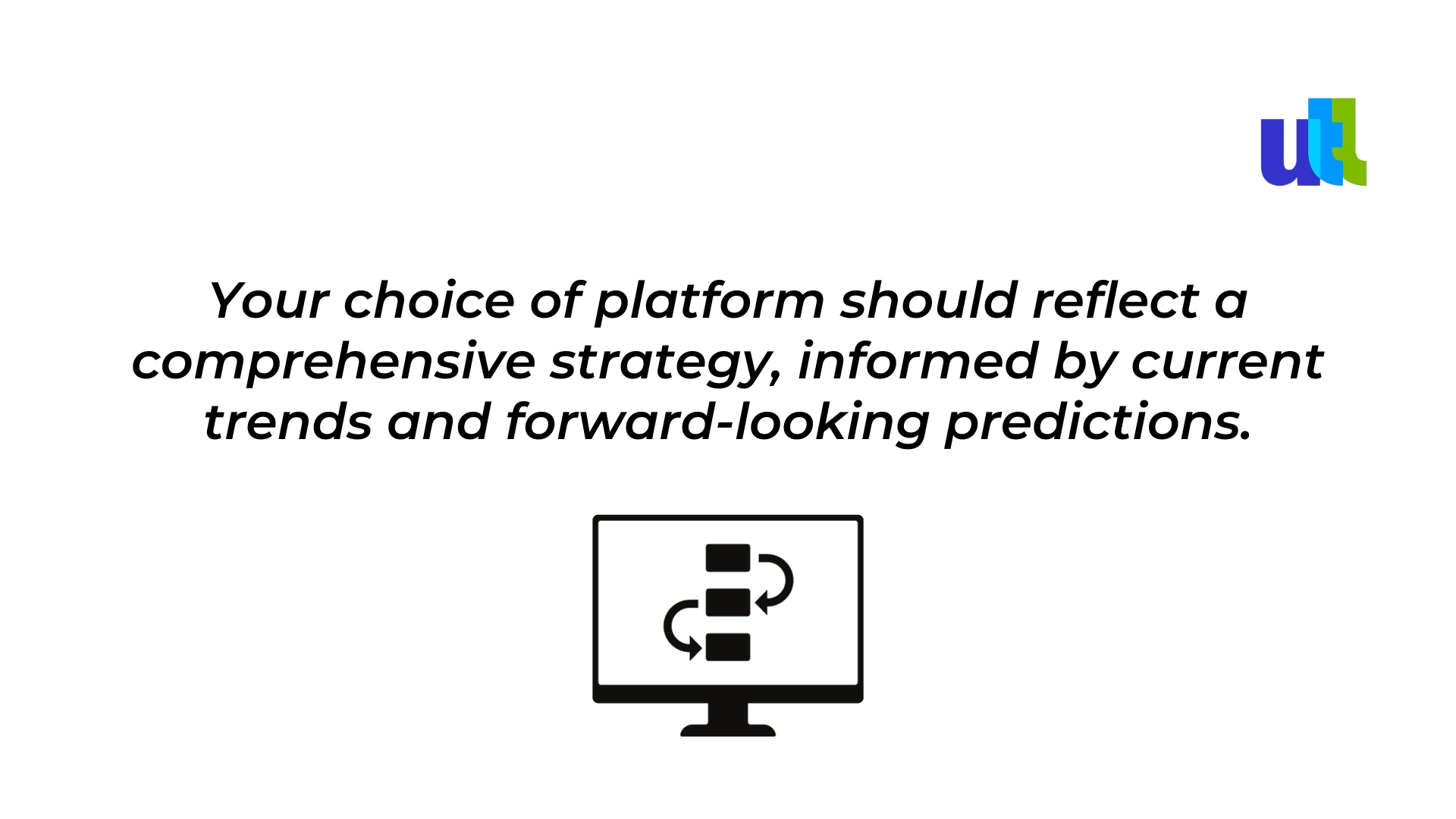
The iOS Development Landscape: An Expanding Horizon
Post-Android, iOS is the gaining lead of mobile operating systems. This growth trajectory corresponds with the rising demand for Apple devices, propelling the iOS development market to new heights. Businesses seeking a competitive edge are increasingly turning to skilled iOS developers to broaden their digital presence.
1. Swift's Industry Dominance:
Introduced by Apple in 2015, Swift has rapidly become the darling of iOS developers for its streamlined, robust approach to app creation. Its ease of use and strong support base are driving its popularity over Objective-C. Swift's versatility across various Apple platforms presages its continued dominance in 2023.
2. Efficiency of iOS App Development:
In terms of time and cost, iOS app development has an edge. It's approximately 30-45% faster and more cost-effective compared to its Android counterpart, thanks in part to Swift's efficiency. Furthermore, iOS's uniform development protocols contrast sharply with Android's fragmented landscape, resulting in a smoother, more standardized process.
3. Uncompromised Security:
The surge in cybersecurity threats, particularly ransomware attacks, underscores the necessity for robust app security. Apple's closed, tightly regulated ecosystem offers an inherent level of protection far superior to the open-source Android platform. The frequent security updates and features like App Transport Security (ATS) reinforce iOS's standing as the more secure option.
4. Innovative Developer Tools:
The iOS environment is rich with developer tools and Software Development Kits (SDKs), simplifying the creation of sophisticated, high-performance apps. These resources reduce the need for building functionalities from scratch, accelerating the development process and fostering innovation.
As we step into 2023, the prospects for iOS development are brighter than ever. Whether you're targeting premium users, prioritizing security, or seeking cost-effective development, iOS is a formidable contender. Its burgeoning toolkit of SDKs and frameworks, combined with its robust security measures, positions iOS development as a vital component in the digital strategy of forward-thinking businesses. In the ultimate showdown between iOS and Android, understanding these trajectories and aligning with the right tech partner will be your compass to navigating the future of app development.
Let’s see the emerging trends and forecasts:
1. Cross-Platform Development:
The future is written in the code of inclusivity. Cross-platform frameworks like React Native, Flutter, and Xamarin are the frontline in this revolution, enabling developers to craft apps for iOS and Android from a single codebase. This approach is not only cost-effective but also a strategic maneuver to captivate a wider audience, streamlining the development process through code reuse.
2. Augmented Reality (AR) and Virtual Reality (VR):
The realms of AR and VR are no longer the stuff of science fiction. These technologies are here and evolving, making significant inroads in app development. Both iOS and Android are investing heavily in these domains, providing developers with sophisticated tools to craft immersive experiences. From gaming and education to retail, AR and VR are poised to redefine the norms of user interaction in various sectors.
3. Internet of Things (IoT) Integration:
The IoT revolution is connecting the mundane in profound ways, making our homes and workplaces smarter and more efficient. As iOS and Android both support IoT connectivity, the onus is on developers to merge their apps with these smart devices, promoting unprecedented levels of automation and interconnectedness.
4. Machine Learning (ML) and Artificial Intelligence (AI):
The integration of AI and ML into mobile apps is a game-changer. Features like voice recognition, chatbots, personalized recommendations, and predictive analytics are only the beginning. The continued evolution of AI and ML will empower developers to construct more intuitive, adaptable, and intelligent applications.
5. Enhanced Privacy and Security:
In an era where data breaches are increasingly common, iOS and Android are tightening the reins on security. Developers now face the essential task of embedding stringent security protocols, data encryption, and user consent mechanisms into their apps. Keeping abreast of privacy regulations is not just mandatory; it's a cornerstone of user trust and compliance.
Summary
In the vast and evolving realm of mobile app development, the iOS vs. Android debate remains at the forefront of strategic business decisions. As of 2023, both platforms come with their distinctive strengths and challenges. iOS, with its user-centric design, emphasizes quality, security, and premium experiences. In contrast, Android is lauded for its openness, customization, and broader device compatibility. Key development tools, languages, and security measures differentiate them, but the future is pointing towards an inclusive approach. Cross-platform development, AR, VR, IoT integration, and advancements in AI and ML are shaping the next wave of mobile applications. Among this dynamic landscape, the choice between iOS and Android should be rooted in understanding specific project requirements, market dynamics, and emerging technological trends. Ensuring top-notch security and user experience remains paramount. As we traverse this digital journey, staying adaptable and informed will be essential in harnessing the true potential of mobile app development in the iOS and Android spheres.
For free consultation on iOS and Android app development, click here.
----------------------------------------------------------------------------------------------
View the full presentation:
WRITTEN BY
Milda Butkeviciute
2023-10-30








